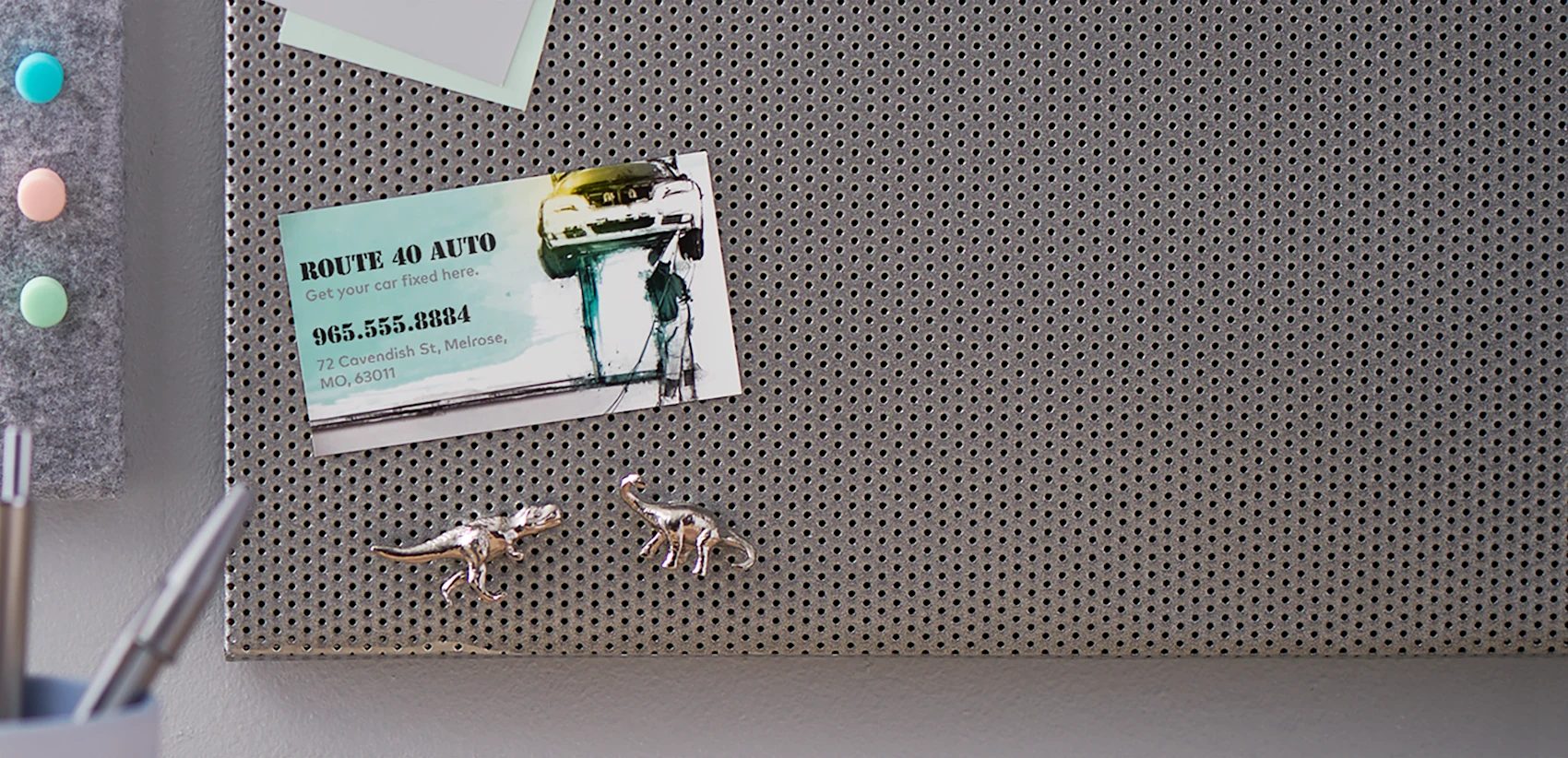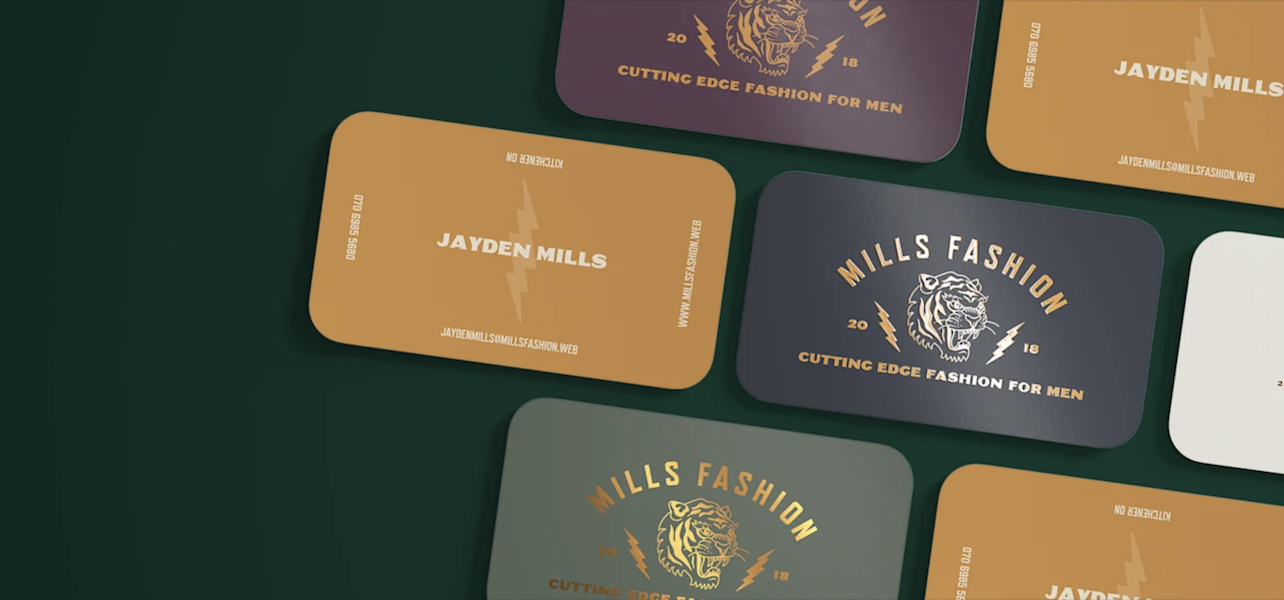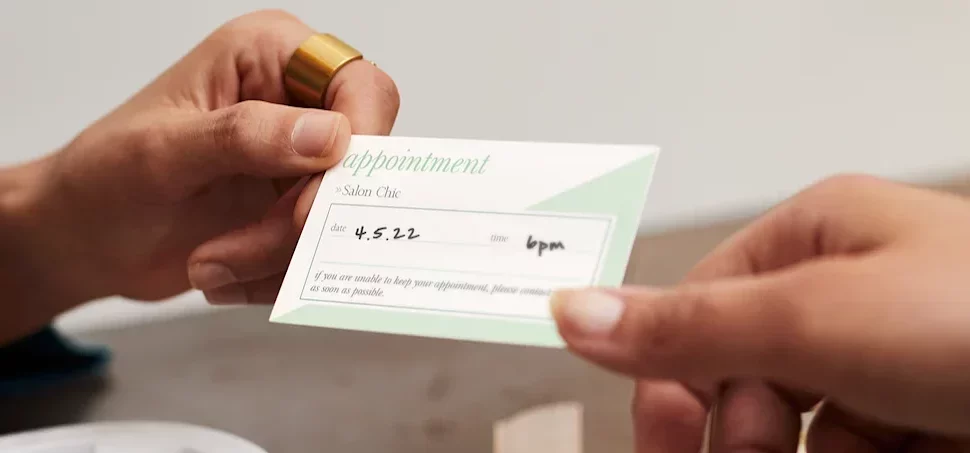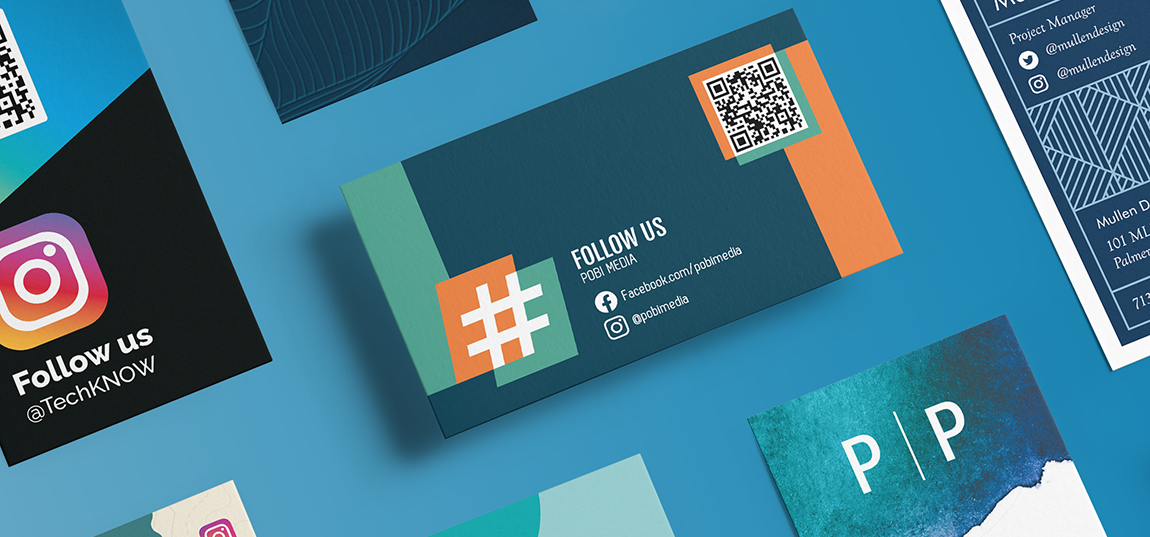Business cards are important for many reasons, from making a positive first impression to creating brand consistency to directing customers to your digital experience. With some reflection on your business objectives and how your card can support your goals, you can create a well-designed business card that is not only stylish but compels action and drives results.
Best types of business cards to consider for your small business
As a small business owner, you have many business card options. There are many different uses for business cards — each type holds distinct benefits and has the ability to suit different types of businesses or industries. Here are seven types of business cards for a small business owner to consider:
1. Appointment cards.

As the name suggests, appointment cards confirm the details of an upcoming appointment. The front of the card can feature all your most relevant business information while the back provides handy space for you to jot down the day and time for your client’s return visit and any other personalized info you have for them.
Best for: Small businesses wanting to lock in repeat customers and minimize no-shows. If your business books appointments in person, such as those in the health, beauty and wellness spaces, secure someone’s next visit and send them out the door with a tangible reminder confirming the details.
2. Magnetic business cards.

A magnetic business card takes a professional business card and all of its details and makes it able to easily attach to fridges, file cabinets, furnaces, bookshelves and more. Durable and practical, magnetic cards are especially likely to be kept around for referencing your information quickly as well as for holding stuff on surfaces.
Best for: Businesses that want their contact information kept front and center, particularly if their services are needed in a pinch, such as restaurant delivery, home maintenance or veterinary care.
3. Loyalty business cards.

Long-term relationships benefit any business and its bottom line. Loyalty cards foster repeat business by providing customers an incentive for their ongoing patronage. Maybe a free 12-inch pizza after ordering five pizzas or a complimentary pedicure after 10 visits. And while digital loyalty cards may be easily forgotten, paper loyalty cards offer customers a tangible invitation to return to your business. They’re also the perfect size for customers to stash in their wallets.
Best for: Businesses relying on ongoing, regular traffic from customers, such as restaurants, retail stores, entertainment centers, and health and beauty businesses.
4. Business cards with QR codes.

A QR code brings a digital twist to the traditional business card. Anyone holding your QR code business card can scan the graphic with their smartphone and be led directly to a pre-defined digital location — your website, social media pages, etc. — where they can further engage with your business. This simple tech lets you nudge a prospective customer toward deeper engagement and bring about a specific desired result.
Best for: Those who use digital channels to spur business. The QR code can lead wherever you choose, such as your online store, a mailing list signup, an appointment scheduler or social media profiles.
5. Eco-friendly business cards.

Eco-friendly business cards, such as those made from post-consumer recycled paper, bamboo or a hemp blend, deliver an environmentally friendly spin on the traditional paper business card.
Best for: Business owners eager to highlight their environmental ethos as a market differentiator. Companies might include an organic restaurant, a cleaning service that uses only environmentally friendly supplies or a hair salon featuring natural products.
6. Promotional business cards.

Business cards are a perfect place to add coupons or promo codes that customers can keep in their wallet for easy access. You can hand out promotional business cards at events, include them in e-commerce shipments or offer referral discounts when customers share your business with a friend.
Best for: Retail businesses, whether in-person or online, who want to increase repeat purchases and show their appreciation for loyal customers.
The best business cards help your business stand out
With a thoughtful evaluation of your business objectives and some creative strategy, you can develop a business card that drives action and results.
Leverage the various types of business cards available to distinguish your small business in the marketplace and nudge customers toward specific actions, whether that’s making an appointment, placing an online order or calling you when they need a quick solution to a problem. You might even mix and match different uses for business cards, such as placing a QR code on a magnetic card or featuring scheduling info or loyalty rewards on an eco-friendly business card.



